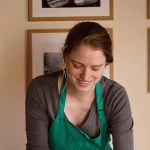Do you have weeks where it feels like the universe is trying to send you a message?
For me, last week the message was that we need to be uncomfortable. Because if we’re not, then at best we’re not developing for the better and, at worst, we are perpetuating our own privilege to the disadvantage of someone else.
It started with a Brené Brown podcast. This episode was with Aiko Bethea and Ruchika Tulshyan, whose careers focus on removing the barriers for inclusion in the workplace, particularly for racial diversity. They were discussing how equity, inclusion and diversity had to enter the workplace dressed as a business case, to make the people they were working with comfortable with the topic. They summarised that “the privilege of comfort is a great enemy to all the work we do”, in contrast to the “psychological courage” it takes to hold ourselves and others accountable for delivering lesser versions of ourselves and the world we live in.
The privilege of comfort stayed with me as a phrase as I went on to speak that week at Anthropy, a conference, hosted at the Eden Project, to facilitate “re-assess[ing] as a nation what we value and what values we will embrace to create new thinking and tackle long-standing challenges”.
Prior to my session, I went to one on female leadership, where an executive described how, as a tech entrepreneur in her 20s, she had to hire two male actors to go with her to meetings so that people would feel comfortable funding her project because if she went as a lone female, she didn’t get funding.
In my own conference session, on the links between farming and the crises of our age, chief executive of the Soil Association, Helen Browning, stressed that farming needs to grit its teeth and get through the drastic challenges currently being thrust on it by big political events, if we’re to make the changes we need for a more sustainable future.
I realise I see every day how we all try desperately to maintain the privilege of our own comfort. We deny the impacts of climate change. We refuse to evolve our own habits, even if it might generate positive results, because of the humility, effort or uncertainty required. We decline to understand the perspective of others for fear we may find ourselves reflecting uncomfortably on our own actions or beliefs.
It can’t have escaped your notice that COP27 is in full swing, with two weeks for global leaders to make politically uncomfortable commitments to try and limit climate catastrophe. At this critical time, my own psychological courage zone would be joining protestors who are taking the more extreme actions and risking their own imprisonment.
To stop admiring from the side-lines all those famous individuals of the last century who sacrificed their own freedom for the privileges many of us enjoy today and join their contemporaries, whether that’s XR, Just Stop Oil, Insulate Britain or someone else. But I’ll admit, I’m still not sure I’m that brave.
More on climate change psychology:
















Hi Harriett, thanks for this – it resonates. And I like the common thread you’ve observed across food, gender and race. To add another: transport. When I was at Sustrans in the 2000s working on how to reduce car dominance and promote healthy travel, the term “comparative convenience” seemed appropriate to define the challenge of comfort. i.e. Car use is often more convenient comparatively than other modes (no need to change clothes, make an effort physically, put on rain-gear, you can listen to the radio, sealed in your own ‘home from home’, etc.)
You also touch on ‘developing for the better’, which speaks to the challenge of physical and mental activities, whether sport, yoga, meditation, or work – anything that requires effort and produces results. People take it for granted that it requires effort to get the good stuff: “Nothing worthwhile comes easy”.
So, I think you’re right, comfort is an enormous barrier to a better future. And perhaps ‘healthy discomfort’ (akin ‘healthy stress’) needs a PR make-over. Plants are perhaps the most emblematic example of this (e.g. pruning trees for stronger growth).
A possible research project on healthy stress is something I’ve been cogitating on discussing with academic health/psychologist colleagues, but yet to progress…
Given that some of my neighbours struggle to get recycling right (our LA provide a nice big bin for mixed recycling to make things easier for us), this week saw milk bottles still containing milk and a half eaten kebab still in its styrofoam tray, then trying to persuade people to give things up without demonstrating that there is a better way that will lead to a less stressful life is a waste of energy and time. COP27 is the 27th hot air talking shop that leads to ‘uncomfortable commitments’ from people who will not be affected by their empty promises (basically a carbon burning festival for wealthy elites and wealthy ‘climate charities’ to promote a techno-fantasy ‘ future vision for those that can afford it) and the worlds poorest will not in their lifetimes benefit from the impact of those ideas. Better to be the threat of a good example and get on with those things we can do at a grassroots level while helping our neighbours to do the same if they want to. Climbing gantries and disrupting the traffic of ordinary people leads to more alienation, not less, whereas as a global pandemic and increased fuel costs had a much bigger and quicker response. Yes ‘we’ are too comfortable in terms of convenience and affordability (by that i mean those of us in this demographic) but an lot of more people are not. The term ‘sphere of influence vs circle of concern seems apt?